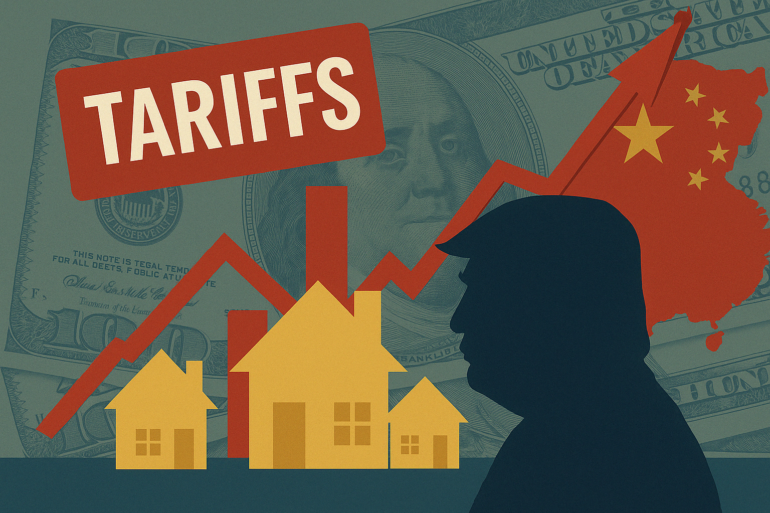When most people hear the word “tariff,” their first thought isn’t usually about housing—it’s probably about international trade, politics, or the price of their next smartphone. But what if I told you that tariffs can actually impact your ability to buy, build, or sell a home?
Yep. Tariffs might seem like something far away from the world of real estate, but their effects are felt right in our neighborhoods—and in our wallets.
Let’s break down how tariffs can quietly (but significantly) shape the real estate market.
🧱 1. Construction Costs Go Up
Tariffs are basically taxes on imported goods. So when materials like lumber, steel, aluminum, and appliances are taxed, builders and developers end up paying more.
➡️ What that means for the market:
-
New homes cost more to build.
-
Fewer homes are constructed.
-
Renovations and home upgrades get more expensive.
In short, it gets harder to keep up with housing demand, especially in fast-growing cities.
📉 2. Housing Supply Shrinks
Higher material costs = fewer homes built. It’s a simple equation that leads to a tighter housing supply.
And when supply goes down and demand stays high? Prices go up.
This can be a major blow for first-time buyers or families looking for affordable options—especially in already competitive markets.
💸 3. Interest Rates Could Rise
Tariffs can fuel inflation. And when that happens, the Federal Reserve may increase interest rates to stabilize the economy.
Here’s how that affects you:
-
Mortgage rates go up.
-
Monthly payments get higher.
-
Buying power drops.
Even a 1% increase in mortgage rates can make a big difference in what someone can afford.
💼 4. Investor Confidence Takes a Hit
Tariffs bring uncertainty, and investors don’t love that.
Big commercial projects—like office buildings, apartment complexes, or mixed-use developments—often slow down when the cost of doing business becomes unpredictable. Foreign investors may also pull back if they think profits could be squeezed.
🗺️ 5. Some Markets Feel It More Than Others
Cities that rely heavily on imported materials or have a lot of international buyers (think New York, Miami, L.A.) are hit harder by tariffs.
Meanwhile, smaller markets or those with more domestic suppliers may not feel the same sting—but nobody’s completely immune.
💬 So What Does This Mean for You?
If you’re buying, selling, building, or investing—tariffs might not be top of mind, but they should be on your radar.
They impact pricing, availability, investment trends, and even long-term real estate strategy.




